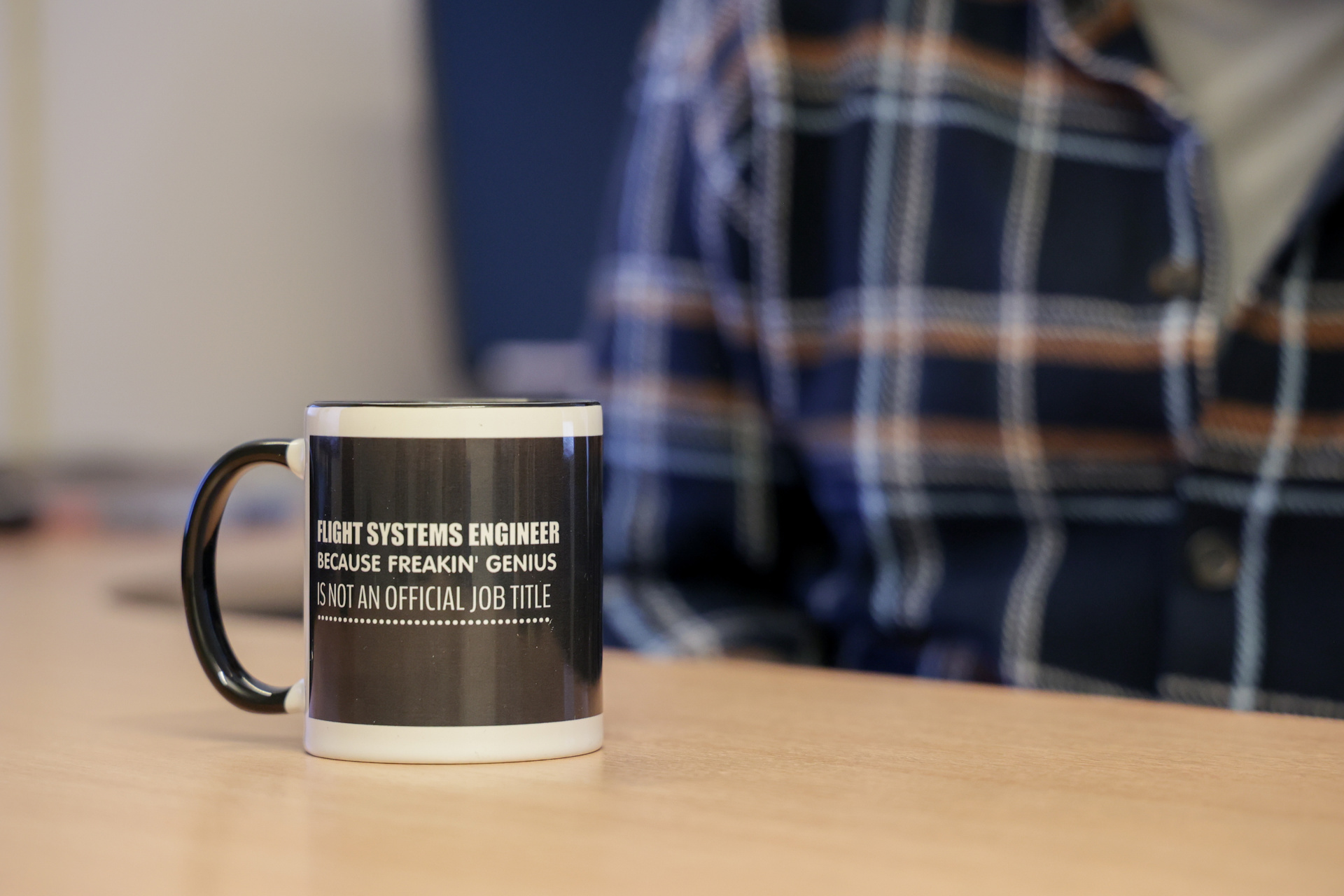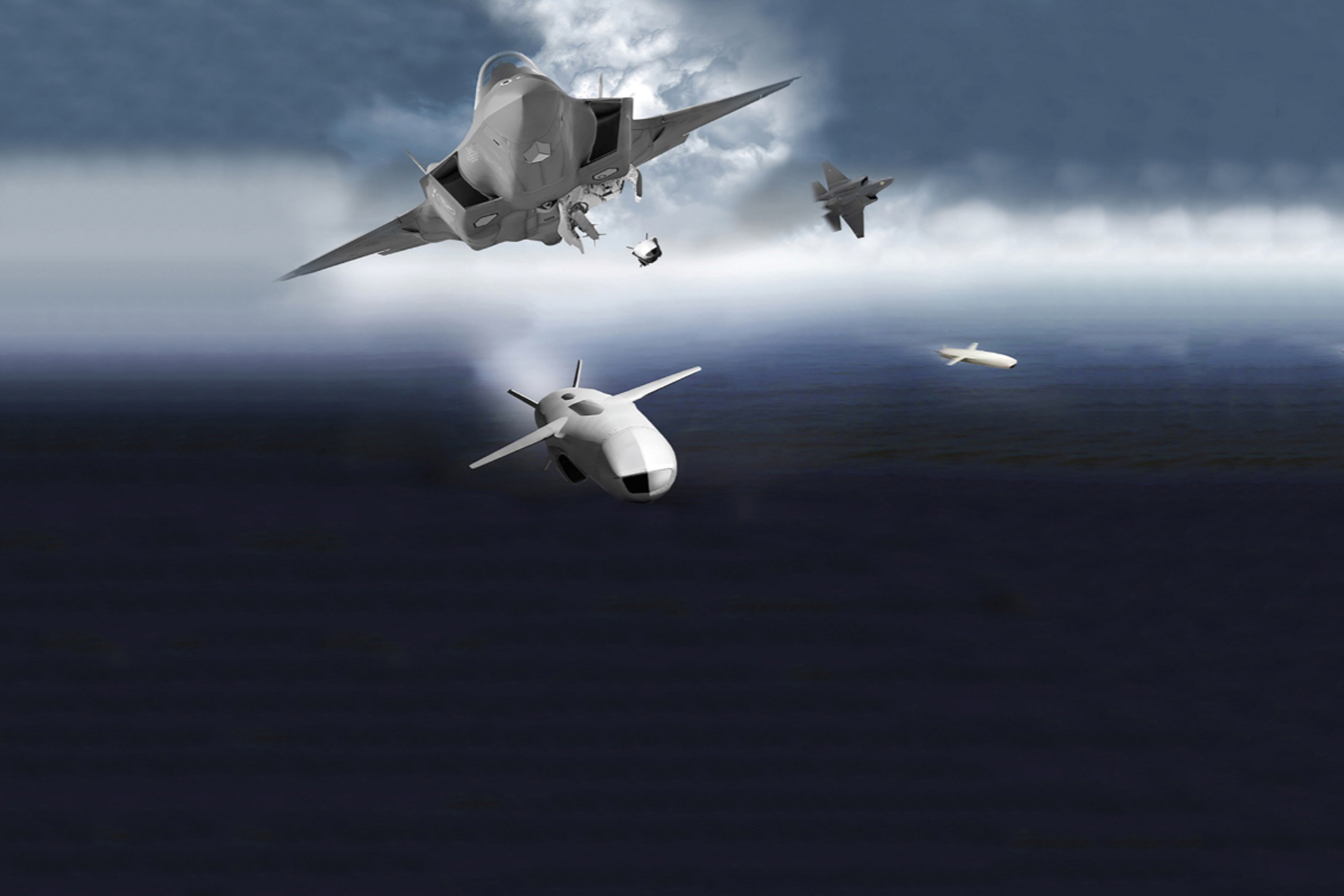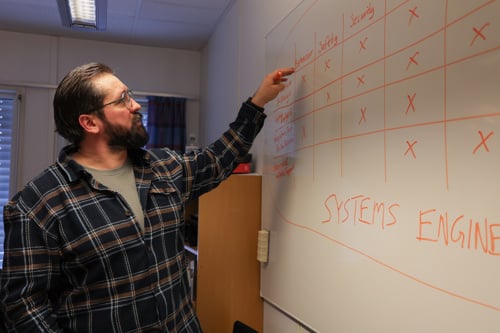
The Chaos Controller
“Being a systems engineer does not necessarily mean that you are systematic. It is largely about controlling chaos.”
-
Text:Anita Nyheim/ KONGSBERG
Photo:Helene Strøm Bergset/ KONGSBERG
Oluf is a committed employee with a firm handshake, warm smile and steady gaze. Although he describes himself as messy, he keeps order in the chaos. Even if his office does not meet quite the same immaculate standard as his sock drawer (according to himself), there is little doubt that he is in full control at work.
The 37-year-old moved to the city of Kongsberg in 2014 to work as a systems engineer. Just two years later, he was appointed group leader for a department that today consists of 25 engineers working with system analysis and design. It is a stable crowd with low turnover, which often means that the employees thrive and that the working environment good. The care for the coffee machine testifies to a community where everyone takes their share of the responsibility. Here, bad coffee means horrible atmosphere.
Now they are looking for more colleagues with system understanding, communication skills and hopefully with an appreciation of good coffee.
Systems Engineering simply explained
Many people misinterpret the term Systems Engineering, and confuse it with IT and software systems. Oluf wants to clarify the difference once and for all.
“Software is only a small part of everything the system engineers do,” he says. “It’s about seeing and understanding the whole and following the product throughout its life cycle.”
Systems Engineering is a form of technical management, and an important part of the job is to understand the customer's requirements and expectations for the product. Based on this, the task is to present a good decision basis to the project management, and pass it on to the various subject experts who will manufacture the products, before the system engineers tests and verifies that everything works as intended. Risk is a key word - it is their job to ensure that the project operates with as low a technical risk as possible and that the product is reliable, secure and safe to operate.

What is required of a systems engineer?
“A typical systems engineer not only has an ability, but also an extreme urge, to put things into a bigger picture,” says Oluf. “He or she is not satisfied with just digging into the details, but needs to understand how this is connected. They like to analyse, break down problems and solve them,” he says.
In addition, they are often good at and enjoys to communicate and work in interdisciplinary teams.
“Because fundamentally, system engineers can't do anything - we need to rely on the subject experts,” he says smiling.
“Systems Engineering is the actual engine of the projects. We are the ones who manage and drive the project forward.”
Oluf himself has a degree in civil engineering within ICT, with a specialization in machine and systems engineering. But there are many different backgrounds that can lead this kind of work.
“My people have a very varied background,” says Oluf, who sees it as a strength that the expertise is complex. “They are often recruited from a specific professional discipline, where they have built up experience and expertise, which is an advantage when you have to understand how this is connected.”
Some have experience from IT and software architecture, mechanics, machinery and electronics, industrial design or from engineering in construction. Both theorists and practitioners will fit in, as long as they are willing to learn, take responsibility and have the ability to work with development.
Many of the employees are also recruited through the Industrial Master's course at the University of Southeast Norway (USN), where the students work half of the time in the industry, and write their Master's thesis based on a specific and relevant case from the company in question.
In the division where Oluf works, as many as 14 out of 15 industrial master's students have gotten a full-time job after their studies.
World class Model based systems engineering
The method they use is called Model based systems engineering, and this is an area where Kongsberg Defence & Aerospace proudly claim to be world class. “This is a modern way of performing systems engineering, where we use new and advanced methods and data tools to master and handle complexity,” Oluf explains. And he is convinced that this requires new and skilled expertise which can ensure that we are pushed forward and not stuck in old ways of doing things.
The defence products stands out because of their long lifetime, and the extreme environments they are exposed to. Following a product through its life cycle can be demanding, in addition to the fact that the level of maintenance should be as low as possible, while availability should be as high as possible. It’s important to find the right balance between the various factors.

Motivation and drive
Oluf's main motivation for working in the defence industry has been confirmed by the events of recent years. The contribution to national security through the development of defence products has never meant more to him.
At the same time, he is driven by exciting technology, high pace, the variety of work tasks and the fact that he must continuously keep up with the times and learn new things. He is also a social guy who appreciates working in teams and meeting new people.
“And enjoy to work with communication. Understanding customers can be demanding, but I like to "dig" and ask questions to find out what they really mean. It's a great feeling when you finally speak the same language and understand each other.”



